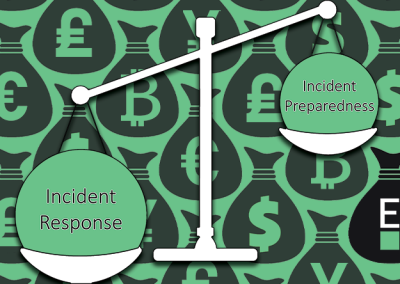TLDR – In the immediate aftermath of two back-to-back cryptoasset exchange failures in April 2021, Turkey announced a spate of new AML rules and suggested adopting a central bank clearinghouse for the crypto sector in the country. A recent report from Turkey’s Central Bank suggests the country is making progress on new regulations.
In April 2021, Turkish cryptoasset exchange Thodex suspended trading and went offline amid reports that its CEO had fled to Albania. Later the same month, cryptoasset exchange Vebitcoin ceased operations citing financial dire straits. Turkish consumers were left in the lurch, as many had moved to trading in cryptoassets as a hedge against the volatility and continuing depreciation of the Turkish lira.
Despite second quarter 2021 results signaling strong 7% growth in the overall Turkish economy, observers noted that the growth was largely because of government spending and efforts to boost market lending. As a result, inflation remains in the double digits and Bloomberg reported that GDP per capita in U.S. dollar terms has dropped nearly 40% since 2013 to around $7,700 last year, making Turkey’s economic model unsustainable, as noted by Enver Erkan, chief economist at Istanbul-based Tera Yatirim.
Consumers have been hit hard by the continuing devaluation of the Turkish lira, which as of late June 2021 was trading at 8.72 Turkish lira to the US dollar. The current exchange rate represents a 24% decline in the lira since mid-February of 2021. Bloomberg noted that President Recep Tayyip Erdogan’s decision to fire the central bank’s hawkish governor Naci Agbal in March set off a swift reversal of investor enthusiasm, sending Turkish markets into a nosedive.
Ironically, despite cryptocurrencies’ known volatility, Turkish consumers embraced cryptocurrencies as a hedge against continued devaluation of the lira. However, as recently as March 2021, cryptoassets were unregulated in Turkey and faced an outright ban as announced in mid-April. With Thodex and Vebitcoin’s respective collapses, Turkey was forced to move quickly in announcing new regulations likely in an attempt to restore consumer confidence particularly given the lira’s decline.
While the investigation into the circumstances of each exchange’s demise is ongoing, Turkey reversed course on a total cryptoasset ban and by the end of April announced new regulations were forthcoming by mid-May 2021.
After announcing the inclusion of cryptoasset trading platforms in Turkish AML regulations and revising its transaction reporting requirements for any crypto transaction over the approximate equivalent of USD 1,200 (10,000 Turkish lira), the Turkish government went silent, presumably as the relevant regulatory bodies studied the issue.
At the end of May 2021, the Central Bank of the Republic of Turkey (CBRT) released a “comprehensive” report on cryptocurrencies that set the tone for the regulations to come. While the report appears to have included examples of regulations from different jurisdictions, no clear path was set for Turkey.
Although the report itself was not made public, local Turkish Bloomberg affiliate BloombergHT noted that it highlighted the following nine risks associated with cryptoassets, loosely translated and lightly edited for clarity:
- Crypto assets are not subject to any regulation and control mechanisms and the absence of a centralized authority leads to a lack of control.
- Excessive market value volatility, due to uncontrolled cryptoasset transfers, creates a serious price risk for investors with significant exposure to cryptoassets.
- Cryptoassets facilitate illegal activities due to its anonymous structure and makes it difficult to track transactions leading to significant tax evasion, money laundering and financing of terrorism on a per capita basis. In some cases, it is not possible to track transactions depending on the types of cryptoassets used.
- There are risks that cryptoasset wallets may be stolen, lost or used illegally without the knowledge of the owners. Although this is mostly the case for hosted wallets, there is also a risk in certain cases for unhosted or cold wallets.
- Cryptoassets are vulnerable to cyberattacks and attacks by hackers. In this context, it is seen that the platforms on which trading is carried out are exposed to such attacks.
- The irreversible nature of transactions may cause irreparable grievances for the parties to the transactions in cases of exchanges’ operational errors or misconduct.
- Cryptoassets do not carry legal protections such as warranties or reimbursement policies.
- Cryptoassets have a sustainability problem as they are not accepted payment instruments by everyone.
- Cryptocurrency mining is processor-intensive, leading to high electricity consumption, which increases global warming.
As cryptoassets continue to face regulatory uncertainty worldwide, observers will be paying attention to Turkey’s approach to managing the rapid growth and evolution in the cryptoasset economy. The key question facing any new regulation will be – does it hinder development or foster innovation while protecting both state and consumer interests?
More to follow.
Bloomberg article on Turkish economic performance:
Turkish lira performance data:
https://tradingeconomics.com/turkey/currency
Bloomberg HT article on the Central Bank of Turkey Report on cryptoassets:
https://www.bloomberght.com/merkez-bankasi-na-gore-turkiye-de-kripto-paralarin-9-riski-2281193
Coindesk article on Turkey’s inclusion of transaction monitoring and reporting changes for crypto exchanges:
Decrypt article on Turkey’s announcement anticipating new crypto regulations:
https://decrypt.co/69005/turkeys-central-bank-governor-crypto-regulation-to-come-within-two-weeks




